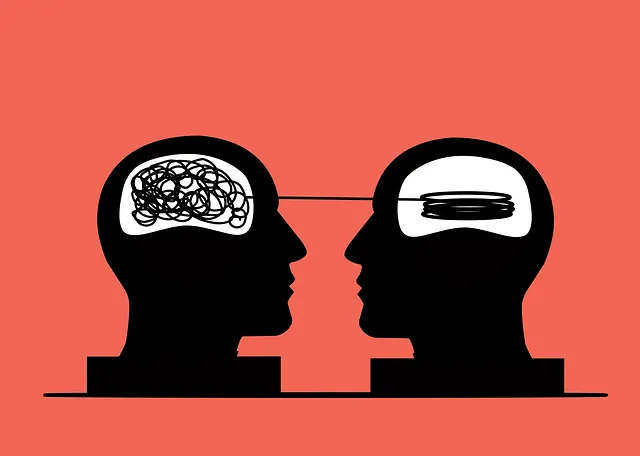Centennial Kaiser Permanente offers comprehensive emotion regulation strategies, including cognitive, mindfulness, and behavioral techniques, through accessible resources like meditation, workshops, and coaching programs. Their mental health number provides support for cultivating emotional balance, improving relationships, and preventing mental health issues like depression by empowering individuals to manage their emotional well-being effectively.
Emotion regulation techniques are essential tools for maintaining mental well-being, as evidenced by resources available from Centennial Kaiser Permanente mental health number. This article explores various strategies to unlock emotional balance, focusing on cognitive rewireling of negative thought patterns, cultivating present-moment awareness through mindfulness practices, and shaping healthy coping habits via behavioral techniques. By understanding and mastering these approaches, individuals can navigate life’s challenges with greater resilience and overall emotional intelligence.
- Understanding Emotion Regulation: Unlocking Emotional Balance
- Cognitive Strategies: Rewiring Negative Thought Patterns
- Mindfulness Practices: Cultivating Present-Moment Awareness
- Behavioral Techniques: Shaping Healthy Coping Habits
Understanding Emotion Regulation: Unlocking Emotional Balance

Emotion regulation is a vital skill that enables individuals to navigate life’s challenges with resilience and adaptability. It involves recognizing, understanding, and managing our emotions effectively, ensuring they don’t overwhelm us or negatively impact our decisions and relationships. At Centennial Kaiser Permanente, our mental health number stands as a beacon of support for those seeking guidance in this area.
Through techniques such as mindfulness meditation and stress management workshops offered by the organization, individuals can unlock emotional balance. These practices empower people to become more aware of their emotions, helping them to identify triggers and develop healthier coping mechanisms. By integrating these strategies into daily life, one can foster a sense of equilibrium, enhancing overall well-being and promoting positive mental health, thus effectively preventing issues like depression.
Cognitive Strategies: Rewiring Negative Thought Patterns

Cognitive strategies are a powerful tool within emotion regulation techniques, focusing on rewire negative thought patterns that can trigger intense emotions. By identifying and challenging negative or distorted thoughts, individuals can gain a more balanced perspective, leading to improved mental wellness. This process, often facilitated by mental health professionals at organizations like Centennial Kaiser Permanente, involves recognizing unhelpful cognitive distortions such as all-or-nothing thinking, catastrophizing, or overgeneralization. Once identified, these patterns can be replaced with more realistic and adaptive thoughts, helping individuals manage their emotions effectively.
Mental wellness coaching programs development emphasizes this cognitive component, teaching participants to recognize and reframe negative thoughts in real-time. A risk assessment for mental health professionals is crucial to ensure these techniques are implemented safely and ethically. Moreover, community outreach program implementation can expand access to such strategies, empowering folks to take charge of their emotional well-being.
Mindfulness Practices: Cultivating Present-Moment Awareness

Mindfulness practices play a pivotal role in emotion regulation techniques, focusing on cultivating present-moment awareness. This involves training the mind to recognize and accept emotions as they arise, rather than reacting impulsively. Through mindfulness meditation, individuals learn to observe their thoughts and feelings without judgment, fostering a deeper understanding of themselves and their emotional responses. This practice is supported by institutions like Centennial Kaiser Permanente, which prioritizes mental health through various initiatives, including promoting evidence-based practices such as mindfulness.
By integrating mindfulness into daily routines, people can enhance their ability to manage stress, anger, or sadness effectively. It encourages a non-reactive stance, enabling better decision-making and conflict resolution techniques. This is particularly relevant in the context of mental health policy analysis and advocacy, where understanding and implementing effective emotion regulation strategies can significantly contribute to improving overall well-being within communities.
Behavioral Techniques: Shaping Healthy Coping Habits

Behavioral techniques play a crucial role in teaching individuals to manage their emotions effectively. One such technique is shaping healthy coping habits, which involves guiding people to adopt positive behaviors that enhance their emotional well-being. At Centennial Kaiser Permanente, our mental health professionals focus on this aspect to ensure long-lasting results for those seeking support.
By promoting the development of inner strength and coping skills, these techniques empower individuals to navigate challenging situations with resilience. Through consistent practice, healthy habits become second nature, enabling people to respond to emotional triggers in a constructive manner. This proactive approach not only helps in the moment but also fosters overall emotional stability, leading to improved mental health outcomes.
Emotion regulation techniques, as taught by experts at Centennial Kaiser Permanente (using their dedicated mental health number for access), offer a holistic approach to achieving emotional balance. By combining cognitive strategies, mindfulness practices, and behavioral techniques, individuals can effectively manage and transform negative thought patterns, cultivating present-moment awareness that fosters healthier coping habits. This empowering toolkit equips folks with the skills necessary to navigate life’s challenges with resilience and emotional agility.






